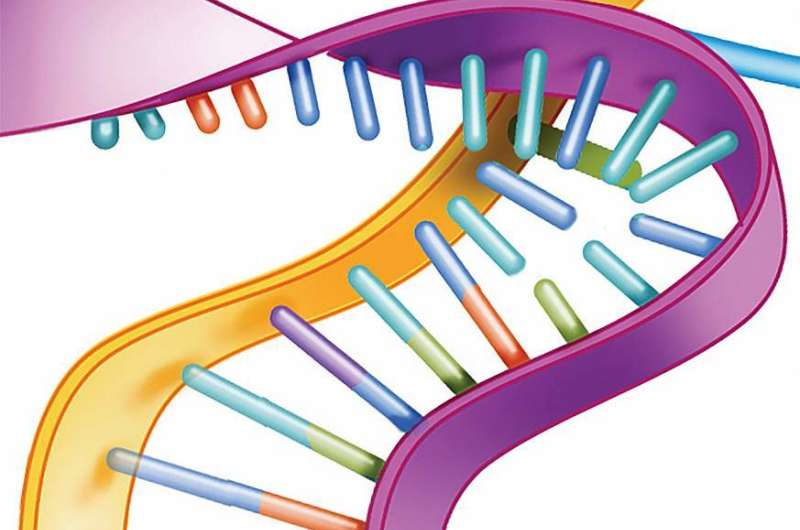Next-generation ALS drug silences inherited form of the disease in animal models

NIH-funded researchers delayed signs of amyotrophic lateral sclerosis (ALS) in rodents by injecting them with a second-generation drug designed to silence the gene, superoxide dismutase 1 (SOD1). The results, published in the Journal of Clinical Investigation, suggest the newer version of the drug may be effective at treating an inherited form of the disease caused by mutations in SOD1. Currently, the drug is being tested in an ALS clinical trial (NCT02623699).
ALS destroys motor neurons responsible for activating muscles, causing patients to rapidly lose muscle strength and their ability to speak, swallow, move, and breathe. Most die within three to five years of symptom onset. Previous studies suggested that a gene therapy drug, called an antisense oligonucleotide, could be used to treat a form of ALS caused by mutations in the gene SOD1. These drugs turned off SOD1 by latching onto versions the gene encoded in messenger RNA (mRNA), tagging them for disposal and preventing SOD1 protein production.
sing rats and mice genetically modified to carry normal or disease-mutant versions of human SOD1, a team of researchers led by Timothy M. Miller, M.D., Ph.D., Washington University, St. Louis, MO, discovered that newer versions of the drug may be more effective at treating ALS than the earlier one that had been tested in a phase 1 clinical trial. For instance, injections of the newer versions were more efficient at reducing normal, human SOD1 mRNA levels in rats and mice and they helped rats, genetically modified to carry a disease-causing mutation in SOD1, live much longer than previous versions of the drug. Injections of the new drugs also delayed the age at which mice carrying a disease-mutant SOD1 gene had trouble balancing on a rotating rod and appeared to prevent muscle weakness and loss of connections between nerves and muscles, suggesting it could treat the muscle activation problems caused by ALS. These and other results were the basis for a current phase 1 clinical trial testing the next generation drug in ALS patients.
More information: Alex McCampbell et al. Antisense oligonucleotides extend survival and reverse decrement in muscle response in ALS models, Journal of Clinical Investigation (2018). DOI: 10.1172/JCI99081


















